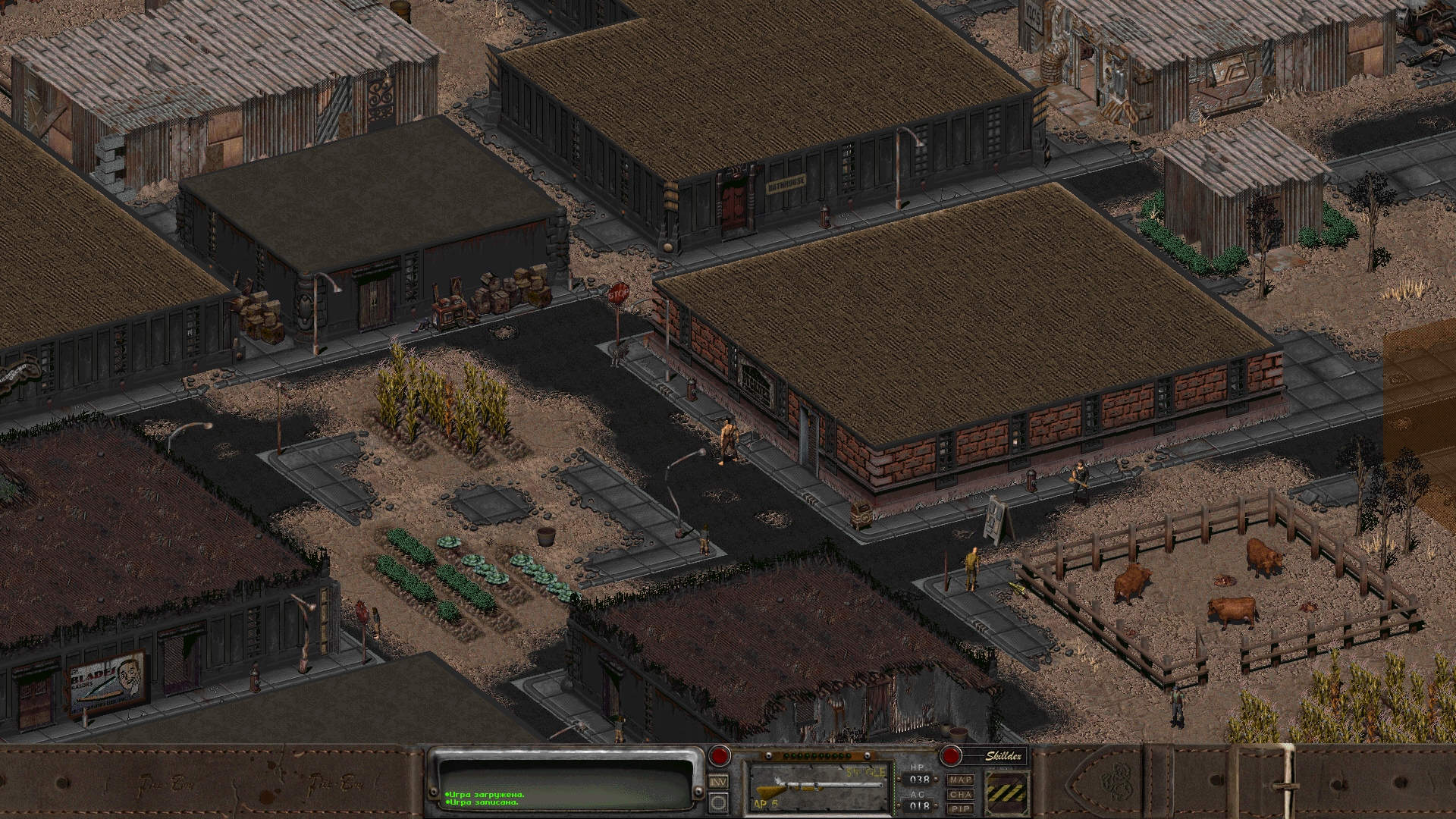tl;dr: I used Rust to make this CLI utility for extracting Fallout 1+2 DAT files.
I love the occasional playthrough of Fallout 1 and 2. They were some of the the first “serious” games I played. Sure, DOOM/Quake/Command & Conquer were also “mature”—I played them around the age of ~10, which marked me as doomed (heh) by the kind of adults that would also think eating sweets is a surefire path to heroin addition or something—but F1+2 included prostitutes, drugs, slavery, and infanticide: irresistibly entertaining topics for a teenager.

You might think that, with Bethesda buying the rights to Fallout over 10 years ago, F1+2 would’ve had a commercial re-release by now, much like what happened with Baldur’s Gate 1/2, or that such a popular franchise with so many fans would create enough momentum to get an open-source engine ported, but those things haven’t really happened. Probably because of various historical hitches.
F1+2 were originally developed by Interplay, which had a meteoric rise in the 90s followed by a precipitous fall in the early 00s (details). Bethesda excavated Fallout from Interplay’s remains in 2007. However, Interplay’s zombie, adopting a 90s zombie movie strategy of having a character bitten right before the credits roll, decided to give away F1+2+Tactics for free just before the IP passed over. As a consequence, Bethesda probably sees a F1+2 reboot as unprofitable. This assumes that the source code is even available to Bethesda. Interplay may have only handed them the sales rights + binaries, which would be a big shame.
I’ve always wanted to make a F1+2 source port, but it’s an incredibly difficult task for several reasons: the literature for open-source RPG game engines is thin, which means an engine will need to be built from first-principles; F1+2 uses a bunch of bespoke file formats, which means deserializers will need to be coded for each of them; and the game logic—what characters do, actions, etc.—is held as a binary opcode language, which requires a small virtual machine to handle.
The Falltergeist developers are the closest to surmounting the F1+2 Everest. They’ve created something that is close to a complete engine, which is amazing. I decided to chip away at the smaller problem of F1+2’s file formats. The result was fo2dat, a CLI utility for unpacking F2 DAT files, which might help any developers wanting to view the game’s assets in a file explorer.
The micro-project was also a chance to try Rust, the new hot thing in systems programming languages. I enjoyed the experience quite a bit: it feels like the Rust developers really understood the strengths of languages like C (non-OO, simple procedures handling data arguments), C++ (powerful compilers), Scala (pattern matching and abstractions), and Lisp (code generation). They combined those ideas with an excellent build system and package manager, which has resulted in a very nice platform.
